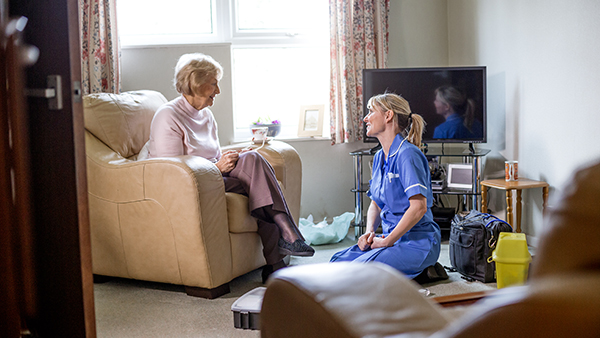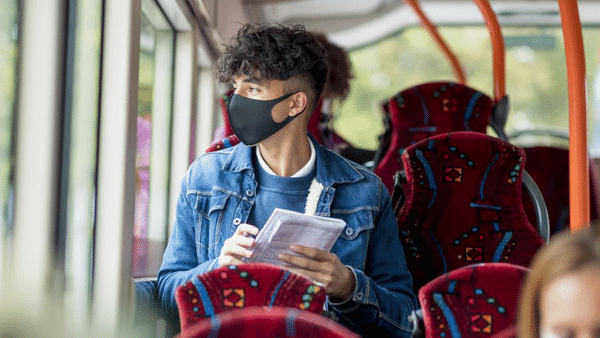For too many young people, their life is impoverished by little or no contact with the natural environment. Randall Williams argues that benefits of active involvement with nature requires a better response.
Think back for a moment to your childhood. What was your favourite or special place? For the majority of today’s adults, their favourite place was out of doors, in most cases beyond adult supervision. Ask the same question of today’s generation and the odds are that the answer will be their bedroom, interfacing with technology rather than the natural world. As for being beyond adult supervision, the likelihood is that every second of their lives will be monitored, far beyond the age once thought necessary.
‘Nature Deficit Disorder’ is a phrase coined by Richard Louv to describe the human costs of alienation from nature. Natural England has published figures that show that only 10 percent of children play in natural spaces: this is despite crystal clear evidence of the benefits that arise from engagement with the natural world.
Those benefits relate to a range of social concerns and policy priorities. One obvious positive impact of active involvement in the outdoors is physical fitness, which directly impacts on obesity and health in later life. Less obvious, but nevertheless very real, is the physiological and psychological impact on well being.
There is also evidence that outdoor activities improve the outcomes for young people at risk of disengagement or anti-social behaviour. And of course, the value for money equation for society is heavily weighted in favour of pre-emptive action. As recent work by the New Economics Foundation has confirmed, proactive work to re-engage young people before they have tipped over the edge is far more cost-effective than picking the pieces up when it is too late.
For many young people, a school journey will be their only experience of life outside the city. They may never have seen the stars unimpeded by the glare of sodium lights. Some will need persuading that it is safe to pick and eat blackberries. Yet, without first hand awareness of the natural world, how can we expect our children to rise to the challenge of being responsible custodians of the planet? Children need to experience the world outside the city. Nature needs children.
A further step is to use the natural environment to introduce children to challenging adventurous activities. Outcomes of a programme of challenging activity resonate with the RSA’s principles of 21st century enlightenment. In terms of self-aware autonomy, children often discover their real abilities for the first time and develop enhanced self-confidence and independence. In terms of capacity for empathy, living and working closely with others opens their eyes to an understanding of other people and how to relate effectively to one another.
In response to the challenges they will face in the future, young people need to learn to live with uncertainty and to develop the resilience to cope with whatever life throws at them. The Campaign for Adventure and the RSA Risk Commission have achieved greater public and media awareness of the need to strike a sensible balance between risks and benefits. An adventure experience helps young people to learn to manage themselves in a risky and uncertain environment and to achieve that balance.
Such an experience can be a real boost to self-esteem, especially for those who have not previously excelled. Many children discover for the first time that they can succeed, a discovery that has a direct effect on their subsequent engagement and motivation. However, opportunity is far from equal, particularly for those who need it most. My own research (forthcoming) shows that, although 90 percent of primary schools offer their pupils a residential experience, the 10 percent that do not are those from areas of greatest deprivation.
Both the last government and the current coalition have recognised the benefits of activities in the natural environment and have funded programmes for certain groups of young people. However, neither has grasped the nettle of embedding such experiences in the curriculum and making them an expectation for all young people. To do so would address the current inequality and allow all young people to access what is both an important part of their heritage and a powerful educational experience.
In the current economic climate, new government funding is not expected but there are delivery models which do not rely on this. Parents recognise the importance: those who can are willing to contribute and the proposed Pupil Premium could act as a backstop to cater for those who could not otherwise afford to participate. All that is needed is a simple entitlement to a progressive range of experiences in the natural environment, including at least one residential experience, as part of every child’s education.
Randall Williams is Chair of the English Outdoor Council, an umbrella body for outdoor education, recreation and training. He has recently retired from running a charitable outdoor centre and is currently undertaking doctoral research in outdoor education.
Related articles
-
Care… the work that makes all other work possible
Richard Humphries
Most of us will need care at some point in our ever-longer lives. Richard Humphries argues that it’s time we recognised its importance and legislated and funded it properly
-
An idea worth stealing
Edward Lowe
Watching how software engineers work could revolutionise how we build products and services, and give employees more interesting and fulfilling work. Edward Lowe talks Tesla, Henry Ford and a lesson from the slaughterhouse
-
Local government transformation and change challenges post-Covid-19
Ian Burbidge
How are local government transformation and change leaders balancing short-term concerns with long-term challenges?



Join the discussion
Comments
Please login to post a comment or reply
Don't have an account? Click here to register.
willy
i love allyshia
jhahahaah
Wow... this is a great information for me. Outdoor adventures is really good for society and also beneficial for children. We can learn so many skills like leadership, competitiveness and team spirit. We can get confidence and enhance our mind power. Adventures games are really good for health too.
Breast augmentation
Interesting article.
I am currently studying Adventure Education at the University of Chichester and believe wholeheartedly in children's need for outdoor adventure. Since arriving on the course I have started to target my studies towards primary education. There is a great need for not only outdoor studies in primary education but also chances for children to have adventures in the outdoors.
There is a great deal of research between self-esteem and the outdoors (a lecturer of mine is a great contributor to this!). Being in the outdoors (be it a school field, forest, mountain or anywhere else) immerses the children fully in the experience, learning occurs from being hands on with the subject. Learning to take risks, make judgments and also just how to move on uneven and slippy surfaces is something that young children need to be exposed to, With correctly trained staff and proper supervision this is achievable.
The development of inter and intra personal relationships is also another positive that can be drawn from outdoor adventure. Children with poorly developed empathy and emotional intelligence go on to be disruptive and anti social, I believe the outdoors has the power to develop empathy through working with others cooperativley and by sharing thoughts and feelings, being creative and expressive develops children s emotional intelligence.
At present I am still new to this domain, but it is one that I hope to explore further and make a career for myself in. I am doing this through working with children, reading books on education and participating in debates such as this.
Stuart